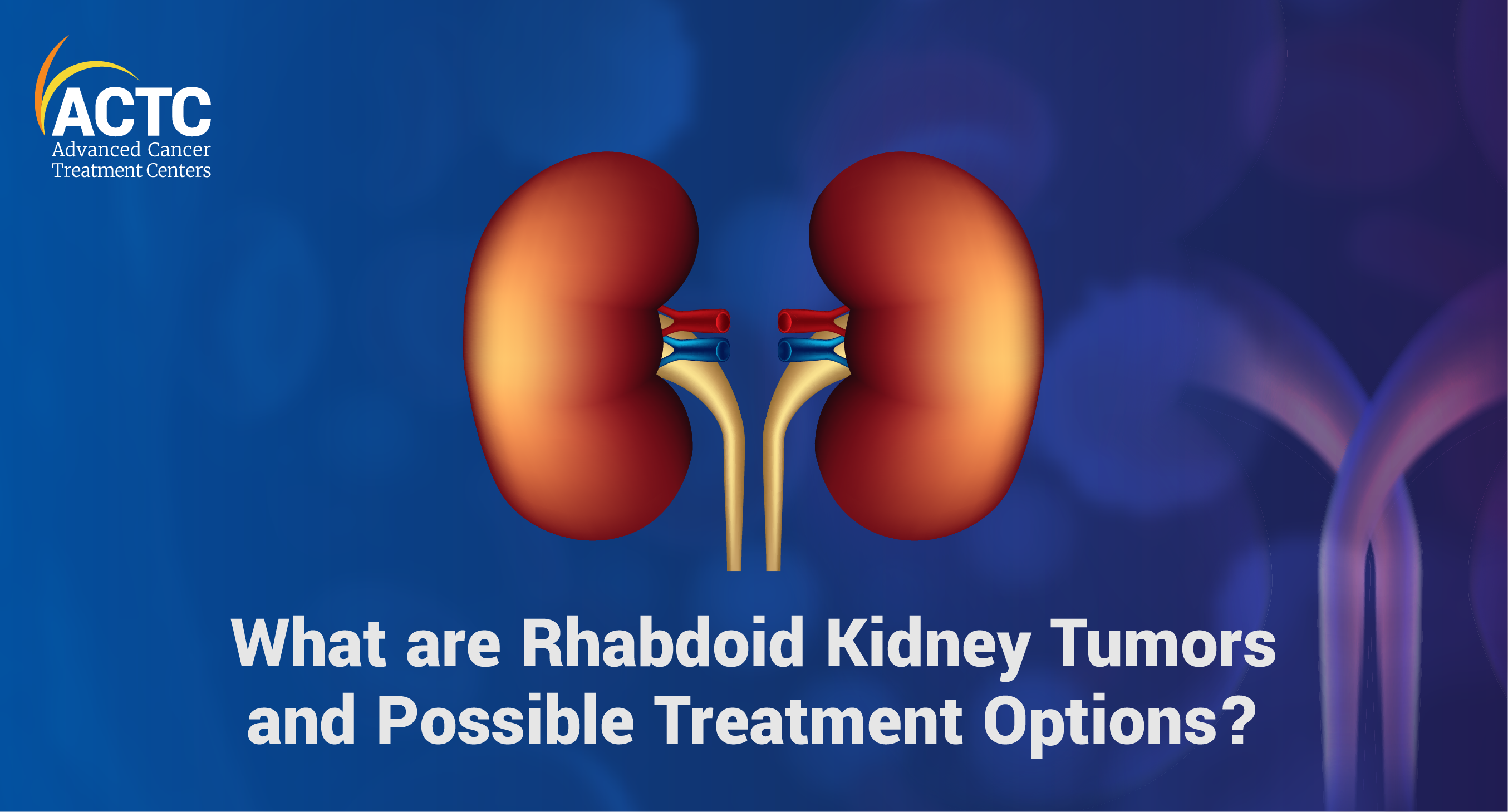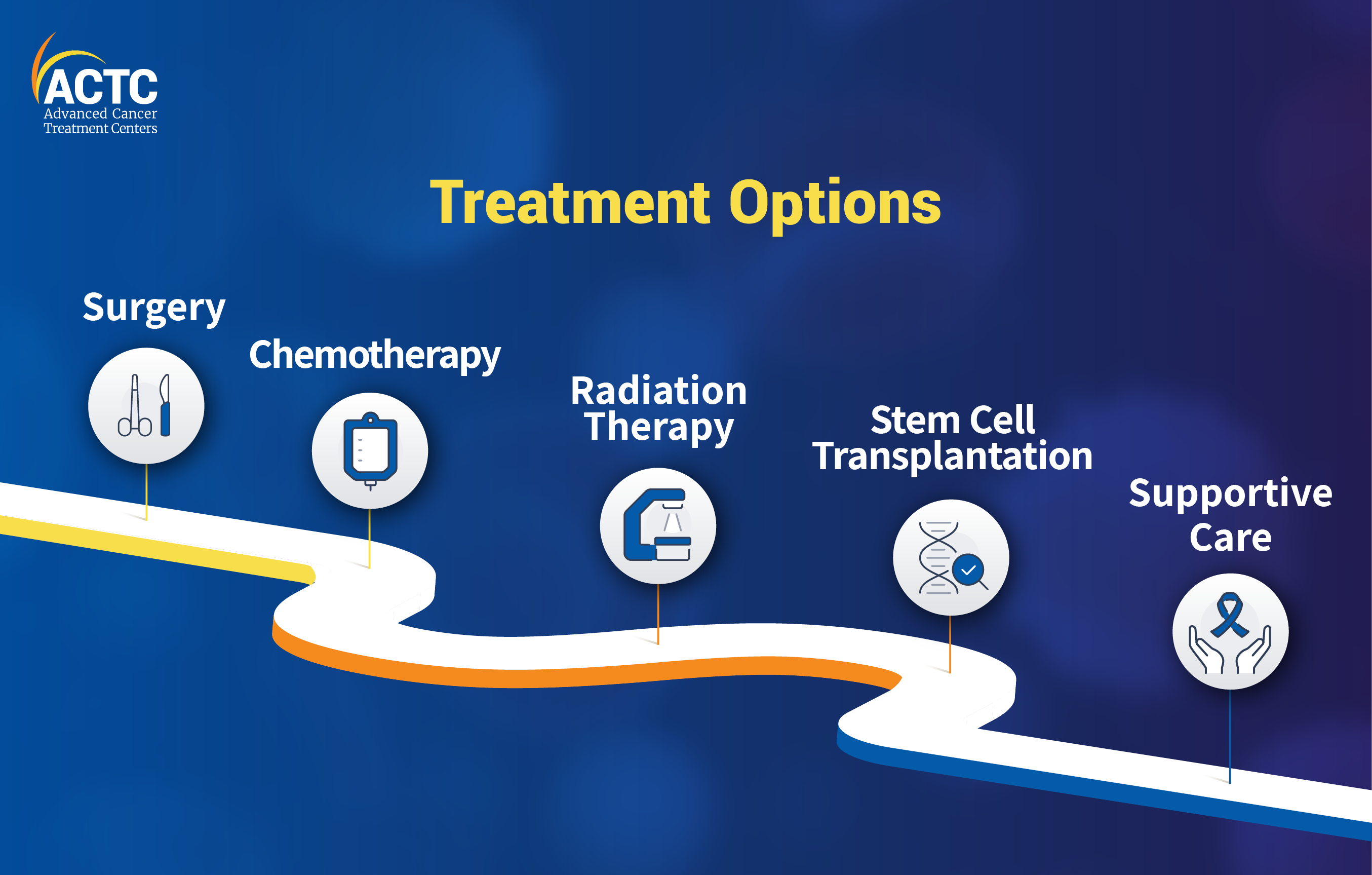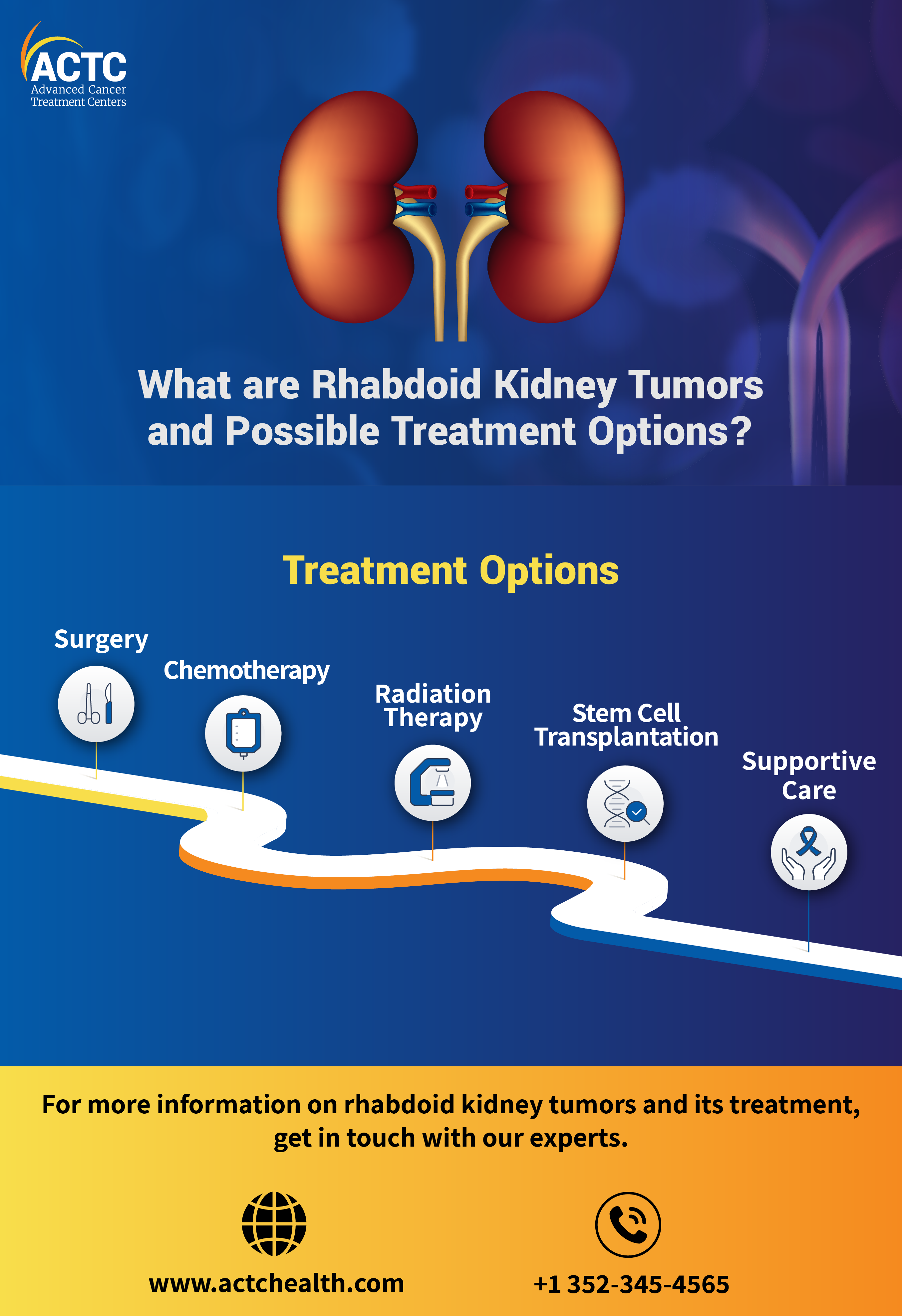
Book a Consultation
Thank you!
Your form has been sent successfully.



September 19, 2022
Rhabdoid tumors are rare. The majority of cases develop during the first year of life, and their prevalence decreases after age 4. It starts in the kidneys and other soft tissues. This type of tumor can grow in the brain, also known as atypical teratoid rhabdoid tumor (ATRT). A malignant rhabdoid tumor (MRT) is a rhabdoid tumor that develops in the kidneys and soft tissues.
Malignant rhabdoid tumors occur most commonly in infants and toddlers; the average age of diagnosis is 15 months old. A child's malignant rhabdoid tumors can metastasize, or spread, to other parts of the body. Rhabdoid tumors have no known cause. Researchers have found that almost all rhabdoid tumors, including malignant rhabdoid tumors (MRT) and atypical teratoid rhabdoid tumors, carry mutations in the gene known as SMARCB1 (also known as INI1, SNF5, and BAF47).
Read more: Kidney Cancer Warning Signs and Symptoms
A lump or mass in the child's belly is usually the first indication that the child has a malignant rhabdoid tumor. Since these tumors most often affect newborns, it may be challenging to make an early diagnosis because the child may not exhibit any pain or discomfort beyond fussiness. When a child has a malignant rhabdoid tumor, they may have trouble urinating or experience blood in their urine.
The specific type of tumor your child has and whether the tumor has spread are determined through diagnostic tests for a malignant rhabdoid tumor. The physician for the child will do a thorough physical and medical evaluation.
Additionally, the child's doctor might mandate a few of the diagnostic exams listed below:
A biopsy or computed tomography scan of a tissue sample (CT or CAT scan)
If a biopsy is performed, the sample will be examined for mutations in the SMARCB1 gene, which is almost always switched off in rhabdoid tumors and also goes by the names INI1, SNF5, and BAF47.
The doctor for the child might advise more tests if a mutation is discovered.

Surgery, radiation, and chemotherapy are among the methods used in treatment. There is no established standard of care for this rare and aggressive tumor, so the patient’s specific needs may dictate the best course of action. The doctor for the patient and other members of the care team will go through all of the options in great detail with the family. For the best outcomes, prompt medical treatment and intensive therapy are crucial.
Surgery is often the initial step in the treatment of malignant rhabdoid tumors. When doing a biopsy, a surgeon will usually attempt to remove the entire tumor. The surgeon may choose to remove the entire kidney or just a portion of it, depending on the size and location of the tumor.
Patients with malignant rhabdoid tumors are given a particularly severe course of chemotherapy, a class of medications that prevents cancer cells from proliferating or growing after surgery.
A child over the age of six months may also receive radiation therapy. High doses of radiation are used in radiation therapy, also known as radiotherapy, as a cancer treatment to eradicate cancer cells and reduce tumor size.
Malignant rhabdoid tumor treatment may be so aggressive as to impair the body's capacity to manufacture healthy blood and immune cells. Because of this, your child's doctor might advise having a stem cell transplant. In order to completely destroy the malignant rhabdoid tumor, this includes temporarily removing part of a child's healthy blood cells and administering extremely high doses of chemotherapy and, in certain situations, radiation therapy. After treatment is complete, the child receives their own healthy blood cells that they had previously saved to support regular body and organ function.
Supportive care is a type of medical care used to prevent and manage problems, adverse effects of medications, and infections. The objective is to keep the child at ease while receiving treatment. Additionally, it plays a critical role in preventing both immediate and long-term side effects from the illness and its treatment.
If you are looking for advanced cancer treatment centers in Florida, consider ACTC. We provide personalized treatment plans for each patient based on an in-depth discussion of their needs. If you've been diagnosed with a rhabdoid kidney tumor and need personalized treatment, call 352-345-4565 to schedule a consultation.



January 07, 2026
A chemo port is a small device placed under your skin that makes recei...
KNOW MORE

December 24, 2025
It's natural to wonder if testosterone replacement therapy (TRT) is sa...
KNOW MORE

December 24, 2025
A rash that will not calm down is scary, especially when it changes or...
KNOW MORE

December 24, 2025
Florida’s lung cancer burden remains significant and affects many fa...
KNOW MORE

December 24, 2025
A partial hysterectomy, also called a supracervical hysterectomy, is s...
KNOW MORE

December 24, 2025
Finding a rash on your breast can be unsettling, but remember, many ra...
KNOW MORE
